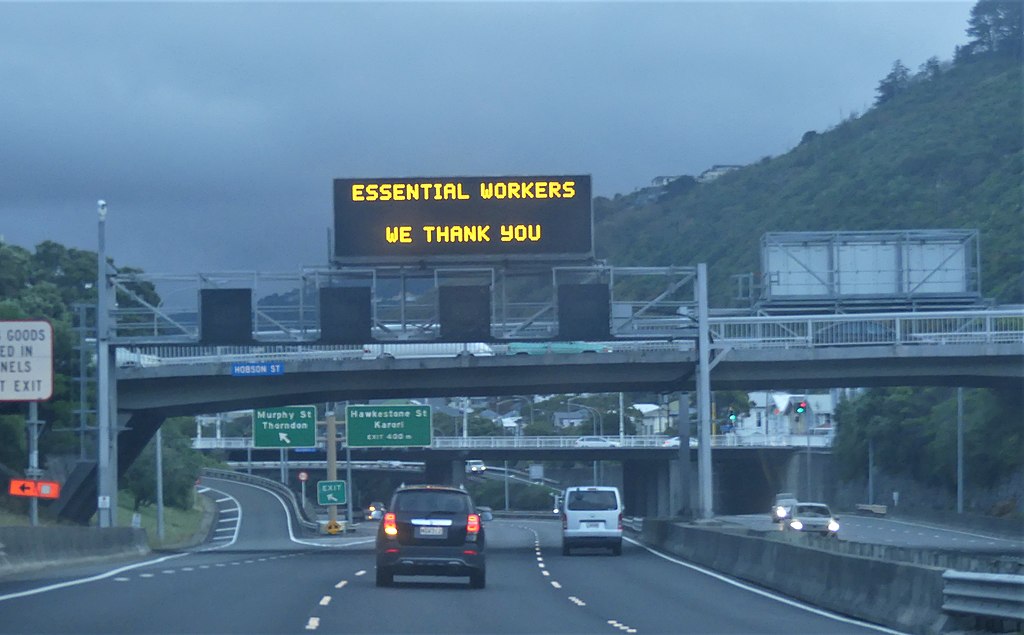We write as socialists and as women who are proud trade union members, active in building our unions and the wider movement. Recent comments by Erin Polaczuk, national secretary of the the Public Services Association, in the Listener distort our trade union history and close off our future. Polaczuk claims the union movement is “smarter now” than it was in the 1970s, that the “feminisation of the union movement has changed things”. “We are not guys coming in and having a punch-up,” she claims. Strikes are a “last resort” in this “mature era”.
These claims distort our union history and offer no way forward for our movement. They represent a dead-end strategically. Our movement remains in long-term decline – Polaczuk’s ideas about the “mature era” will reinforce this decline. Only a revival of class-struggle unionism, against the approach Polaczuk champions, can win real, lasting gains for workers.
We recognise our union whakapapa and acknowledge the mahi, commitment, and struggles that trade union women in the past had to make. We draw inspiration and strength from these struggles. Women like Joyce Hawe of Te Arawa, a machinist at Progress Manufacturing in Porirua who organised a successful strike for higher pay. Women like Rangiuru union shed secretary Bertie Ratu, who organised a protest when Talleys sacked her for being a unionist. Women in their hundreds in the Meatworkers Union who were “union hard” through Talleys’ lock outs, fighting alongside their male comrades against the boss. What conditions we have in the workplace now are a legacy to us won through fighting, through strikes and confrontations with the employers by those who came before us in the union movement. What we have lost we lost because we did not fight, and agreed to the politics of compromise and collaboration that wore our movement down through the 1980s, 1990s and 2000s. Polaczuk patronizingly dismisses the streategies of the time our side won its biggest gains as being “stupid and oppositional” and equates to a “punch up”.
There are three lines of distortion that run through Polaczuk’s commentary about the modern union movement.
Distortion 1: The lack of industrial action in recent years reflects a shift to a more mature, sensible union movement.
Industrial action hasn’t declined because of a consensus among mature, sensible unionists. The downturn in industrial action stems from a decline in the union movement dating from the ruling class attacks of the 1980s and 90s.The 1991 Employment Contracts Act saw workers’ rights decimated, and subsequent attacks have seen it weakened further. The drop in strikes since the 1990s probably reflects less an attitude shift in rank and file workers, and more the fact that the right to strike is no longer legally recognised. And that right was not something gifted to us by being ‘mature’, either: it was won as a fact by workers defying the law.
To their shame, the then leadership of the PSA failed to support rank and file opposition to the bill. They capitulated and allowed the Bill to pass. The union leaders at the time were more interested in containing the struggle to ensure that they had a seat in the negotiating room rather than organising a struggle that could put bosses and the government on the defensive.
In their defeat, public-sector unions began pursuing services-based recruitment strategies which emphasised cheaper insurance policies, or holiday cribs for union members rather than industrial action. The union movement as a whole has been in decline – and still continues to shrink – since these attacks. In 2016, around 17% of people in Aotearoa belong to a union – that’s a bit less than one in five people, according to Statistics New Zealand. This is a decline that still continues, and marks a more than 50% decline compared to the period before the 1991 ECA. Industrial action continues to limp at an all-time low of just 13 stoppages in 2014 according to Ministry of Business, Innovation, and Employment.
If this is the legacy of being “smart” and “mature” perhaps we should try some stupidity.
Distortion 2: The shift away from “stupid, oppositional” union activity- namely, industrial action- has been a resounding success.
Union membership has declined over the period Polaczuk welcomes as the “smart, mature” era. Industrial struggle has focused on defensive battles, trying to hold off further cuts rather than winning new demands. Important industries are almost wholly unionised. This does not looks like a good picture to us. And it suggests that the “modern union movement” has some hard thinking to do about strategy. More of the same won’t work.
Statistics show a massive transfer of wealth from the poor to the rich since the ECA and in the first decades of the twenty-first century. Inequality and child poverty and now such widely-recognised public problems that they became issues all the parties claimed to want to address at the last election. The strike weapon, when used regularly, helped keep gains for our side. As employers have learned that they need not fear unions any more workers’ self-activity has become less and less of a question. The results are there to see all around us.
Between 2009 and 2017 National governments managed to push through numerous anti-worker reforms, such as removing the right to tea-breaks (which the new Government has reversed) and introducing 90 day trial periods where employers can fire workers without justification (which the new government has failed to fully reverse, despite promises to the contrary). This is hardly the record of a period when unions found new relevance.
What then of the courts? We have won victories here, certainly, and the International Socialists have celebrated these along the way. But there are limitations to a court strategy, as Julia Smith has analysed on this website. What the courts grant the courts too can take away. What laws Parliament passes Parliament also can amend. So, unless we have union power on the job – unless, in other words, there are unionised women ready for the “punch-up” of strike action to challenge the employer – court victories can be hollow. Just look at the threat to equal pay, still on the legislative agenda after our side’s win in court last year. Juxtaposing court cases to class struggle does not make sense tactically, and it promotes illusions that the court system – set up by the rich and powerful and rigged in the interests of the rich and powerful – can be a consistent fair player. This is not being “smart” or “mature”.
Meanwhile, a few notable exceptions to the general rule of defensiveness jump to mind. The RMTU recently took to industrial action to defend their pay and work conditions. They won after only one day on strike, with an employer’s representative slandering them on Radio NZ as thugs and disrupters. Women workers were to the fore in this dispute. The PPTA and NZEI immediately called stop-work meetings when the government tried to introduce a detrimental new funding model, and the threat of industrial action was enough to make the government back down, fearing a repeat of the “bulk funding” fiasco of the 90s. Both unions organise in the traditionally “feminine” area of education.
Distortion 3: The turn away from industrial action represents not only a more mature and thoughtful union movement, but a more feminine one.
We see no shame in the labels thrown at unions by the right-wing: thugs, disruption, strike chaos etc. Where there is no union strength, as in forestry, workers’ health and safety is threatened. People die. Where our unions have fought for our conditions, including using the strike weapon, we have defended basic and important conditions: rest breaks, rostered time off, pay increases.
To dismiss the sacrifices of past generations as “a bunch of guys looking for a punch-up” is hugely insulting to the men and women who won what rights we have today. Women and men have been martyred to the union cause. Others have faced long periods of unemployment after being blacklisted. Those areas where workers have been most confident have often also been where traditional macho ideas have been challenged. The boilermakers in Wellington under Con Devitt’s leadership, for example, in the 1970s donated labour and money to Māori, women’s and gay rights social movements. Muldoon attacked these men as “thugs”. Polaczuk echoes tired right-wing slurs against workers.
Her comments are also sexist. The idea that women are inherently more gentle and dislike conflict is a myth, and a very convenient myth for employers who keep wages low in the “caring” professions (we do it for the love, remember?) and for bosses who want to convince women standing up for themselves is unnatural. The “feminisation” of the workplace in the 1960s and 1970s came along with strikes in female-dominated industries for the first time, brashly confrontational movements against sexism and for women’s rights to abortion, equal pay and liberation, and the move of women into union leadership. Women fought for a place on the chain in the meat industry, challenging sexist assumptions – sometimes through actual punch-ups! – and winning better-paid jobs. Women in the PSA confronted the government for equal pay. Women teachers beat off bulk funding in the 1990s with disruptive strikes. Our heroes are fighters across history: Mother Jones, Joyce Hawe, Irene Bolger from the Australian nurses in the 1980s, the women who won striking in West Virginia last week.
We need more strikes, and more bloody-mindedness, if our movement is to revive. Women will be at the heart of that, but not in the ways Erin Polaczuk suggests.









